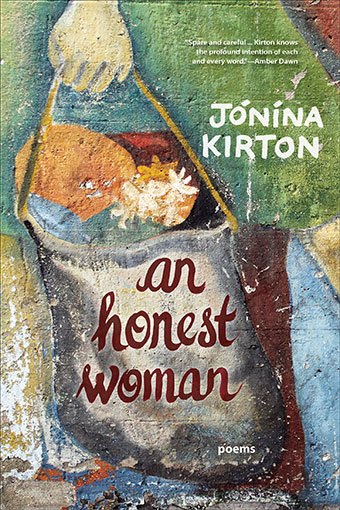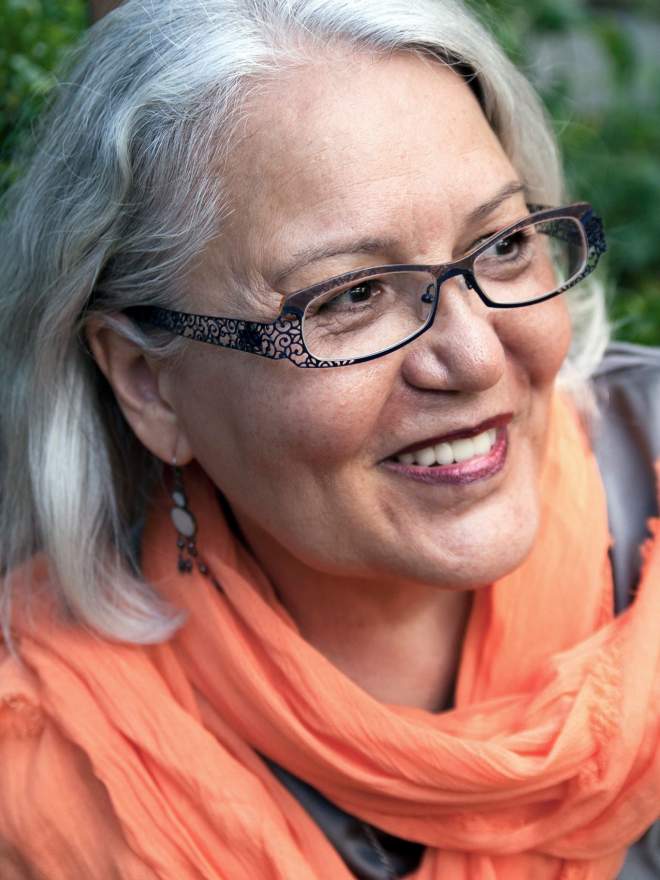Jónína Kirton | An Honest Woman
Reviewed by: Lorraine MartinuikAn Honest Woman, Kirton’s second volume, delves even more deeply to compose an intimate portrait of traumas lodged in the body. The poem “REDress” tells us “grief cuts bone”, and speaks of “the daily dismemberment of our hearts”. These poems also present some of the all-too-common stories of physical and emotional abuse, alcoholism, violence – a grievous and often chilling array of mistreatment on all levels. The opening poem, “between” , ends with:
hitchhike home
from disco
not knowing
‘our women’ go
missing
Memory in Kirton’s work is not so much an imaginal process as it is a mapping of the hurts. These are narratives of pain that tell how one comes to be a certain way in the world. The poem “dear pain” asks “what do you want from me?” More than once, the question comes up: “where does it hurt?”, specifically, never being asked where it hurts. In “grab that pussy”, the speaker says, “….it does hurt everywhere!”
These poems are also narratives of anger: so much injustice, inhumanity, and violence in the way a Métis woman is treated by our society. These are internalized, and integrated into the family dynamic, such that the fifteen-year-old subject of “collective history” is “a shame carrier …. a vortex of empty space ….”
There are, too, gentle moments: in “nisîmis”, “the laughter once shared / with your brothers in the tub”; a reprieve from grief in “a quiet thread”, “this morning / I wept at the joy of the sun / the way it creeps into every crack”. The “hungry ghosts” “…. look over your shoulder // wish you read more poetry”.
Kirton’s voice is strong and clear. The rhythm of the voice is shown on the page. Lines use open space to separate parts of an idea or image, where the speaker pauses for breath, or to find the right next word. There is no punctuation, and few capital letters. A reader’s eye follows the thought and breath rhythms of the speaker of each poem. Through this technique, Kirton helps us ‘hear’ the voice.
These two collections are not without hope. An Honest Woman closes with “I will rise”. page as bone ~ ink as blood closes with “Otipemisiwak (the people who own themselves)”, which the end-notes explain is a Cree word used to refer to Métis. The poem ends with “I want to own myself”. This reader cannot say whether the speaker has found her way there, but from my reading of these two books, I would say that the poet has found, and owns, her voice.
Please fill out the form below to receive news from us.


